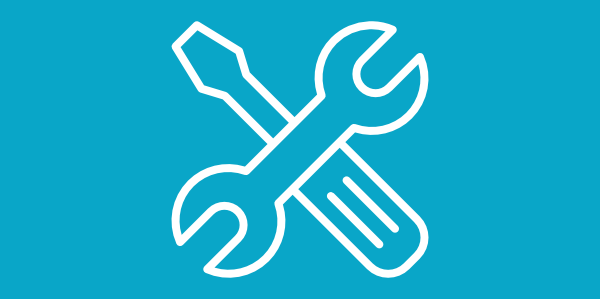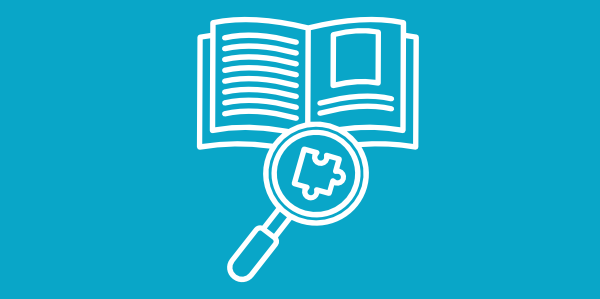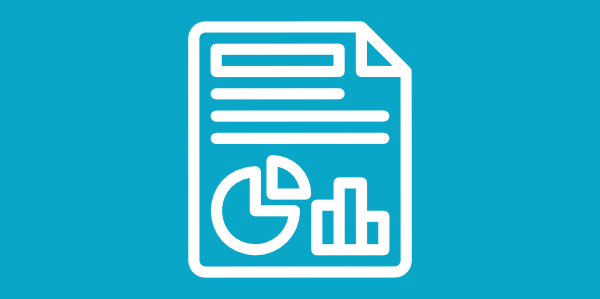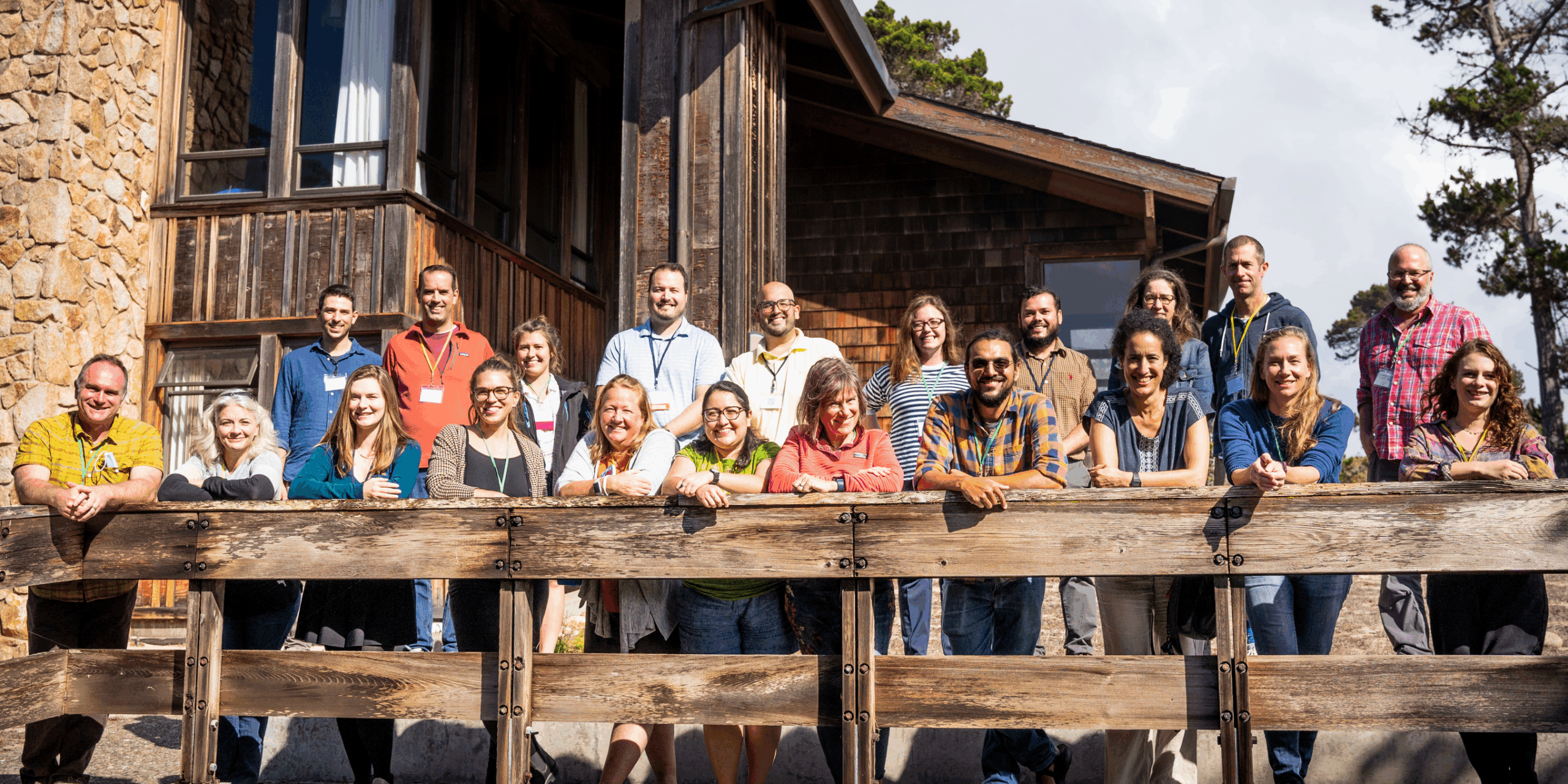This catalog of external and internal resources has been collected by the LNO staff and committees and continues to grow each month. Here you'll find toolkits, references, reports, and videos. It can be filtered by topic, format, and primary audience.

Published: 2025
This guide walks you through what it means to advocate for yourself, why it’s essential for your growth, and practical tips to help you go from overlooked to empowered—without losing your authenticity.
Authors: Nikki Pebbles-Perretti

Published: 2025
This website congregates dozens of facilitation training programs, and allows you to filter by price, duration, and location.
Authors:

Published: 2024
By understanding how to apply self-advocacy in your own life and career, you can put yourself on the path toward accomplishing your big-picture goals and even become a better collaborator.
Authors: Kate Vitasek,

Published: 2024
From the Synthesis Skills for Early Career Researchers course:
The success of a collaborative synthesis science project rests in no small part on the ability of the team of researchers to work effectively together and to draw on the full range of expertise, knowledge, and capacity in the group. Effective facilitation of team meetings can go a long way toward unlocking the group’s full potential. This module focuses on inclusive facilitation techniques to enable and encourage full, thoughtful, engaged participation during virtual and in person group meetings.
Authors: Carrie Kappel, Marty Downs

Published: 2024
From the Synthesis Skills for Early Career Researchers Course: In this module, we’ll dive into some of the literature underlying our recommended team science practices (the science of team science). We’ll also explore some of the more common types of conflicts that arise in synthesis work and ways to anticipate, prevent (when possible), and resolve those conflicts.
Authors: Carrie Kappel, Marty Downs

Published: 2024
This glossary is intended to be used by facilitators, particularly in the scientific arena when replying to queries or in designing equity, diversity, and inclusion (EDI or D&I) workshops. Included are terms that
come up regularly in our work; this is by no means an exhaustive list.
Authors: Sawsan Khuri, Surshti Patel, Kate Baker, Fridah Mutili, Mark Griffiths, Nakul Puri, Tamsin Kilner

Published: 2024
Chronicle of Higher education article with recommendations on centering accountability in DEI statements.
Authors: Stacy Hawkins

Published: 2023
Fieldwork, including work done at sea, is a key component of many geoscientists’ careers. Recent studies have highlighted the pervasive harassment faced by women and LGBTQ+ people during fieldwork. However, transgender and gender diverse (TGD) scientists face obstacles which have not yet been thoroughly examined. The article’s authors fill this gap by sharing their experiences as TGD people. In this work, they provide recommendations for individuals, cruise leaders, and institutions for making seagoing work safer for our communities.
Authors: Kay McMonigal, Natalya Evans, Dani Jones, Jay Brett, Reece C. James, Mar C. Arroyo, A-bel Y. Gong, Elizabeth C. Miller, Colette Kelly, Jule Middleton, Chris Spear, Wil Holmes, Dakota Lane

Published: 2022
This essay defines scientific facilitation as a form of interactional expertise and explains how facilitating scientific teams requires skills in managing interpersonal interactions as well as understanding how different types of disciplinary knowledge integrate in the creation of new knowledge. Next, it explains how this science facilitation expertise may be developed through metacognition. Finally, it provides examples of how scientific facilitation could be more widely incorporated…
Authors: Amanda E. Cravens, Megan S. Jones, Courtney Ngai, Jill Zarestky , Hannah B. Love

Published: 2022
An example of a fieldwork safety manual from the Department of Biological Sciences at the University Pittsburg.
Authors: Sara Kuebbing, David Clark, Burhan Gharaibeh, Mary Janecka, Kevin Kohl, Rachael Kramp, Michel Ohmer, Castilleja Olmsted, Karen Peralta Martinez, Tessa Rhinehart, Elizabeth Rudzki, Martin M. Turcotte, Corinne Richards-Zawacki

Published: 2022
After reflecting on their own research programs, the article’s authors propose four general principles to guide equitable, inclusive, ethical, and safe practices in field biology: be collaborative, be respectful, be legal, and be safe. This article provides suggestions for action-oriented approaches to make field biology more equitable, with particular attention to how those with greater privilege can contribute.
Authors: Valeria Ramírez-Castañeda, Erin P. Western, Jeffrey Frederick, Rebecca D. Tarvin

Published: 2022
Field stations and marine laboratories (FSMLs) are sentinels of Earth’s climate, providing scientists with the infrastructure to collect data in otherwise inaccessible areas of the globe. Many FSMLs were built around and continue to perpetuate male-dominated institutional ideologies, making it difficult for women, BIPOC, and those with intersecting identities to progress, succeed, and thrive. In a collaborative effort across field ecologists and communication scholars working with women navigating these spaces, this book’s priorities are to: 1) document the gender history of FSMLs; 2) provide a context for the current organizational culture and understand the current communication climate dynamics; 3) explore current barriers to leadership, success, and factors that contribute to positive communication climates in FSMLs, and 4) explore strategies, programs, and interventions for supporting women’s leadership roles, as well as, to develop best practices for policy, resource allocation, and field station design to better support and increase women’s leadership roles in FSMLs.
Authors: Edited by: Victoria Mcdermott,Jennifer M. Gee, and Amy R. May

Published: 2022
This paper acknowledges that geographical fieldwork and fieldtrips can be deeply stressful, anxiety-inducing, troubling, miserable, hard and exclusionary for many colleagues, students and pupils. This paper draws on on qualitative data from research with UK university-based Geography, Earth and Environmental Sciences (GEES) academics who self-identify as having mental health conditions which substantially affect their daily lives. These data prompt reflection on the nature and experience of fieldwork in two ways. First, they require acknowledgment of fieldwork as not just ‘muddy’, widening disciplinary imaginaries of fieldwork accessibility to encompass marginalities in/of Human Geography fieldwork practice. Second, contrary to pervasive disciplinary idealizations, these data demand recognition that fieldwork and fieldtrips are not necessarily gleeful but can be sites of intense latent anxiety and intersectional marginality.
Authors: Faith Tucker, Catherine Waite, John Horton

Published: 2022
To explore how field experiences can be designed to engage more community college students, the Undergraduate Field Experience Research Network (UFERN) held a “community conversation” (Community Colleges in the Field: Successful Programs and Strategies) on 15 October 2021. This article summarizes and provides synthesis of the discussion.
Authors: Amanda N. Robin, Alicia A. Farmer, Kari O'Connell, Alison K. Varty, James A. Hewlett, Jimmy W. Lee

Published: 2022
ASTC developed this toolkit–with the help of several contributors–to provide concrete guidance on how to ensure that digital programs and experiences are accessible to a wide range of individuals, including those with disabilities. Although it’s oriented toward museum and science center interpreters, it’s got lots of valuable information for science communicators of all stripes.
Authors: The Association of Science and Technology Centers

Published: 2021
This guidebook focuses on the overall event planning process: We outline our PACT framework, which describes four key elements to consider when planning your meeting or event.
Authors: Lou Woodley, Katie Pratt, Jenny East

Published: 2021
This paper presents a twenty-point anti-racism plan that organizations can implement to build an inclusive, equitable and accessible geoscience community. Enacting it will combat racism, discrimination, and the harassment of all members.
Authors: Hendratta N. Ali, Sarah L. Sheffield, Jennifer E. Bauer, et al.

Published: 2021
A comprehensive checklist that seeks to make fieldwork a “positive, generative, collective, and valuable experience for all participants.” Written by authors with a wide range of backgrounds and field experiences, this document stresses inclusivity over each step in the fieldwork process, from planning to the return and debrief.
Authors: Sarah E.Greene, Gawain T.Antell, Jake Atterby, Rehemat Bhatia, Emma M.Dunne, Sam Giles, Sebastian S.Groh, Emma M.Hanson, Jason Hilton, Hazel Knight, Peter Kraft, Esme Morgan, Isobel Rhodes, Francisca G.T.Rockey, Shivani Singh, Carl T.Stevenson, Simiao Sun, Bridget A.Warren, James R. Wheeley, Kweku A.Yamoah

Published: 2021
Researchers from Native American and Indigenous communities explain how colleagues and institutions can help them to battle marginalization.
Authors: Virginia Gewin

Published: 2021
This study found that LGBTQ STEM professionals were more likely to experience career limitations, harassment, and professional devaluation than their non-LGBTQ peers. They also reported more frequent health difficulties and were more likely to intend to leave STEM.
Authors: E. A. Cech, J.J. Waidzunas

Published: 2021
Report of the Workshop to Promote Safety in Field Sciences that was organized by CSU Desert Studies and the Consortium for Ocean Leadership on 24-26 March 2021. The workshop resulted in 52 recommendations targeted at improving field science culture change, as well as misconduct accountability, policy, and reporting. The recommendations focus on improving experiences for field participants of all backgrounds and identities. The recommendations represent a starting point, and we hope that the report will inspire and guide different audiences and actors in field science in implementing some or all of these recommendations, and to do so in a collaborative, community-based way.
Authors: Desert Studies Center, Consortium for Ocean Leadership

Published: 2021
Written primarily for undergraduates considering a research experience, the paper recommends practical strategies for dealing with three common sources of anxiety: imposter syndrome, communicating with mentors, and safety in fieldwork.
Authors: Bonnie M. McGill, Madison J. Foster, Abagael N. Pruitt, Samantha Gabrielle Thomas, Emily R. Arsenault, Janaye Hanschu, Kynser Wahwahsuck, Evan Cortez, Kaci Zarek, Terrance D. Loecke, Amy J. Burgin

Published: 2020
This publication details how commonly used color maps distort perception for all readers and how they may make visualizations unreadable or misleading for those with color vision deficiencies. The artilce includes recommendations for improved color mappings.
Authors: Fabio Crameri, Grace E. Shephard, Philip J. Heron

Published: 2020
By analyzing data from nearly all US PhD recipients and their dissertations across three decades, this paper finds demographically underrepresented students innovate at higher rates than majority students, but their novel contributions are discounted and less likely to earn them academic positions. The discounting of minorities’ innovations may partly explain their underrepresentation in influential positions of academia.
Authors: Bas Hofstra|Vivek V. Kulkarni|Sebastian Munoz-Najar Galvez|Daniel A. McFarland

Published: 2020
The racial history of scientific progress and the impact of exploitation and non-inclusive research on scientists and society. Plus, why objectivity will not solve the clearly documented (see data references within) problem; alternative solutions are proposed.
Authors: 500 Women Scientists Leadership

Published: 2020
Lessons from the APLU INCLUDES Project. The Association of Public and Land Grant Universities has compiled evidence of promising practices for recruiting and retaining faculty from underrepresented groups.
Authors: Jessica Bennett, Lisa Lattuca, Kacy Redd, Travis York

Published: 2020
The article outlines tangible actions white academics can take to support Black colleagues and students.
Authors: Jasmine Roberts-Crews

Published: 2020
Certain individuals are at higher risk for conflict and violence when they are in the field due to prejudice against their race/ethnicity, sexual orientation, disability, gender identity, and/or religion. This paper provides strategies for acknowledging and reducing the risk of conflict.
Authors: Amelia-Juliette Claire Demery, Monique Avery Pipkin

Published: 2020
As scientists are increasingly acknowledging the lack of racial and ethnic diversity in science, there is a need for clear direction on how to take anti-racist action. This paper presents 10 rules to help labs develop anti-racists policies and action in an effort to promote racial and ethnic diversity, equity, and inclusion in science.
Authors: Bala Chaudhary|Asmeret Asefaw Berhe

Published: 2020
A very short, digestible, actionable set of recommendations for improving inclusion of students and colleagues who are Black, Indigenous, or People of Color.
Authors: J. Anadu, H. Ali, C. Jackson

Published: 2020
Successful fieldwork and fruitful academic careers hinge on acknowledging and managing our mental health. This paper discusses peer-support networks, secondary trauma, coping skills, therapy, and researchers’ mental health options before, during, and after fieldwork.
Authors: Calla Hummel, Dana El Kurd

Published: 2020
This article summarizes survey findings of LGBTQ+ scientists in the geosciences community and highlights the unique challenges they face.
Authors: A. N. Olcott, M. R. Downen

Published: 2020
Geoscience graduate programs are increasingly abandoning the controversial test as an admissions requirement, a welcome development for equity and inclusion in the field. How can your school be next?
Authors: S. H. Ledford, M. M. Monteagudo, A. N. Flores, J. B. Glass, K. M. Cobb

Published: 2020
Virtual places of learning and work bring with them new challenges to maintaining inclusive and safe classrooms and workspaces. The rapid shift to virtual learning and working from home for large segments of the population in the US and globally in response to the COVID-19 pandemic highlighted some of these challenges, especially given little time for preparation. In order to address shifting workplace dynamics and accommodate individual needs in a time of heightened inequities, consider the following questions about differences in accessibility and impact. This webpage provides a sample of readings on important topics to keep in mind for inclusive learning and working spaces.
Authors: ADVANCE Geo Partnership

Published: 2020
In web design, alt-text offers a way for visually impaired readers to understand the role that images play on a web page. Scientific visualizations, such as charts and graphs, pose a special challenge in this area. This 2020 article by visualization expert Amy Cesal offers useful tips.
Authors: Amy Cesal

Published: 2020
This short paper in Ecology and Evolution outlines strategies for turning field experiences from exclusive experiences into channels for inclusion. A handy graphic and short video are also provided.
Authors: Erika S. Zavaleta|Roxanne S. Beltran|Abraham L. Borker

Published: 2020
This article examines the demographic gaps in ecology and evolutionary biology and their findings indicate retention rather than recruitment drives disparities in representation. . The study also found that underrepresented students were less likely to enroll in field courses, but that field courses were associated with higher retention.
Authors: Roxanne S. Beltran|Erin Marnocha|Alexandra Race| Donald A. Croll|Gage H. Dayton|Erika S. Zavaleta

Published: 2020
Article from Inside Higher Education, which calls for faculty to rethink their inclusion and accessibility statements in their syllabi which points to several elements beyond the content to focus on.
Authors: Freya Möbus

Published: 2020
Jornada Basin LTER Code of Ethics including their code of conduct.
Authors: JRN personnel

Published: 2019
This page defines bias (explicit and implicit) microaggressions, and then aggregates resources on bias in sciences general and geosciences specifically. The page also shares resources on how implicit bias affects self-perception.
Authors: Aara'L Yarber

Published: 2019
This LTER page includes a description of the Broadening Participation Committee’s function, activities, and membership.
Authors: LTER Network Office, LTER Broadening Participation Committee

Published: 2019
It’s easy to get stuck in an endless whirl of grants and papers. Jeffrey McDonnell offers tips for becoming a leader in your field to ascend to the next professional level.
Authors: Jeffrey McDonnell

Published: 2019
The INTERACT Fieldwork Planning Handbook covers all aspects of fieldwork, from the initial idea, to the actual fieldwork, through to getting safely back home with samples and data to wrap up the project. A particular focus is put on all aspects of planning until you venture into the field and safety aspects when working at INTERACT stations or in the field.
Authors: Fiona Tummon, Andrea Schneider, Julie Bull, Gwenaëlle Gremion, Gabriela Roldan, Morgan Seag, Ruth Vingerhagen Hindshaw

Published: 2019
A case for abandoning the GRE in the geosciences
Authors: Jane Willenbring

Published: 2019
Researchers are urging universities across the United States to find a new way to identify the next generation of scientists. A new study discovered that traditional admissions metrics for physics Ph.D. programs such as the Graduate Record Examination (GRE) do not predict completion and hurt the growth of diversity in physics, which is already the least diverse of the sciences.
Authors: Casey W. Miller, Benjamin M. Zwickl, Julie R. Posselt, Rachel T. Silvestrini, Theodore Hodapp

Published: 2019
The Moorea Coral Reef (MCR) LTER site code of conduct.
Authors: MCR personnel

Published: 2018
The skill of self-advocacy is not only useful for supporting changes that students want to see in their institutions and beyond: It may be the most important foundational skill behind success in college.
Authors: Kathleen A. D’Alessio, Dorothy A. Osterholt

Published: 2018
A large part of creating and promoting inclusive climates in your department or field site comes from one’s understanding of social inequities that are present in our scientific and work communities and in our society as a whole. Addressing issues related to power dynamics, intersectionality, and privilege is critical for promoting positive, productive relationships with our colleagues and students, creating a safe and respectful learning and working environments. This resource gives helpful definitions, examples, and suggestions for improving workplace climate.
Authors: ADVANCE Geo Partnership

Published: 2018
An article to increase awareness of the prevalence of bullying and harassment in the workplace, and to provide compiled resources on the topic.
Authors: Jessica Miesel

Published: 2018
Interesting insights in this review from ADVANCEGeo leaders about how changes have been implemented and measured versus what is known about what is likely to be effective. It suggests some ways to move forward (both in education and measuring the changes/outcomes).
Authors: Allison Mattheis, Megan Murphy, Erika Marin-Spiotta

Published: 2018
A blog post asking academics to focus on creating more inclusive environments instead of focusing on the recruitment of “diverse” candidates alone.
Authors: Terry McGlynn

Published: 2018
An anonymous contributor shares their experience with a horribly all too common problem with remote field research: sexual harassment.
Authors: Anonymous

Published: 2018
Fieldwork is central to the identity, culture and history of academic Geography, Earth and Environmental Sciences (GEES). However, in this paper we recognize that, for many academic staff, field trips can be a profoundly challenging “ordeal,” ill-conducive to wellness or effective pedagogic practice. Drawing on research with 39 UK university-based GEES academics who self-identify as having a mental health condition, this paper explores how mental health intersects with spaces and expectations of fieldwork in Higher Education.
Authors: Faith Tucker, John Horton
Published: 2018
This article speaks to the importance of mental health in field work and summarizes the factors that impact mental health in the field.
Authors: Cédric Michaël John, Saira Bano Khan

Published: 2018
This article shares the author’s experience as a Black, first generation Canadian in graduate school and gives advice on how to navigate academia for other Black graduate students.
Authors: Anita Jack-Davies

Published: 2018
Responding to hostile behaviors requires a community effort and strong leadership to send a clear message that these types of behaviors are not acceptable. Here you will find strategies to address incidents when they happen through bystander intervention as well as resources for changing the culture so that these behaviors do not continue to be tolerated.
Authors: ADVANCE Geo Partnership
Published: 2018
In addition to the ADVANCEGeo Partnership’s bystander intervention workshops, this page contains a compilation of common training programs on bystander intervention and other strategies to address harassment, sexual violence, and bias.
Authors: ADVANCE Geo Partnership

Published: 2018
As you expand recruiting efforts — whether for students, faculty, staff, or proposals — a strategic recruitment plan can help you decide how to prioritize time and resources. What does it take to make an institution more diverse? (Nature, 6 June 2018) offers some ideas for getting started.
Authors: Virginia Gewin

Published: 2018
Fundamentally, tackling racism and intolerance in science requires an acknowledgement from us all that it exists. This is a call on senior scientists to speak up and to invite others to do so.
Authors: Devang Mehta

Published: 2017
Now in its eighth edition, Working Through Conflict provides an introduction to conflict and conflict management that is firmly grounded in current theory, research, and practice, covering a range of conflict settings (interpersonal, group, and organizational).
Authors: Joseph P Folger, Marshall Scott Poole, Randall K Stutman

Published: 2017
A blog post about how we can improve the creativity and performance of research teams
Authors: Jennifer E. Cross, Hannah Love

Published: 2017
A short, two-minute video explaining what microaggressions are, using the analogy of insect bites.
Authors: Fusion Comedy

Published: 2017
A 20-minute video detailing the many ways microaggressions show up in university classroom settings but is generalizable to academia in general.
Authors: Carla LynDale Bishop, Director, Dr. Yolanda Flores Niemann, Producer

Published: 2017
This study presents a qualitative analysis of field researchers’ experiences based on interviews, focusing on both positive and negative aspects of conducting academic research in the field. It identifies two main issues: unclear professional behavior guidelines at field sites and difficulties accessing professional resources and opportunities. Respondents reported a lack of consequences for breaches of conduct, such as harassment and assault, which negatively impacted their careers. The study introduces a “traffic light” model to illustrate the effects of varying clarity and access on field experiences. The findings build on previous survey results and suggest that fieldsite directors and principal investigators should adopt specific policies and procedures to enhance fieldwork experiences and promote equal opportunities.
Authors: Robin G. Nelson, Julienne N. Rutherford, Katie Hinde, Kathryn B. H. Clancy, , , ,

Published: 2017
Research mentor training (RMT), based on the published Entering Mentoring curricula series, has been shown to improve the knowledge and skills of research mentors across career stages, as self-reported by both the mentors engaged in training and their mentees. This paper describes the train-the-trainer workshop program at CIMER.
Authors: Christine Pfund, Kimberly C. Spencer, Pamela Asquith, Stephanie C. House, Sarah Miller, Christine A. Sorkness

Published: 2017
The goal of EEB Mentor match is of matching undergraduate students from minority-serving institutions who are interested in ecology and evolutionary biology with mentors who can provide feedback on graduate and fellowship applications. You can sign up as a mentee or mentor.
Authors: Meghan Duffy, Terry McGlynn
Published: 2017
An article outlining ten rules to develop a lab-specific expectations documents to provide a mechanism for prospective and current mentees to evaluate if the lab is a good fit for their needs.
Authors: Kristyn S. Masters, Pamela K. Kreeger

Published: 2016
This book provides scholars with a historical lens from which to view the higher education of Black women.
Authors: Stephanie Y. Evans

Published: 2016
The article from the Huffington Post’s Highline section discusses incidents of gender harassment, hostility, and violence that have occurred during fieldwork within America’s national parks and forests.
Authors: Kathryn Joyce

Published: 2015
An Inside Higher Education article about the exploitation of scholars through inequities in labor in academia (cultural taxation) for faculty of color and gives career advice centered on ways to minimize the burden.
Authors: Eric Joy Denise

Published: 2015
Recommendations for solving issues for many women conducting field work.
Authors: Caitlin I. Looby, Kathleen K. Treseder

Published: 2014
A survey of field scientists reveals that experiences of sexual harassment and assault are common, particularly among women trainees who are often targeted by senior team members, while male trainees face harassment from peers. Many respondents were unfamiliar with codes of conduct or reporting mechanisms and were dissatisfied with the outcomes when they did report incidents. The study highlights the need for improved policies on safety and inclusivity, better reporting mechanisms, and effective responses to harassment, with principal investigators playing a key role in shaping fieldwork culture.
Authors: Kathryn B. H. Clancy, Robin G. Nelson, Julienne N. Rutherford, Katie Hinde

Published: 2014
There is increasing recognition of the significance of traditional knowledges (TKs) in relation to climate change. And yet there are potential risks to indigenous peoples in sharing TKs in federal and other non-indigenous climate change initiatives. These guidelines are intended to examine the significance of TKs in relation to climate change and the potential risks to indigenous peoples in the U.S. for sharing TKs in federal and other non-indigenous climate change initiatives.
Authors: Climate and Traditional Knowledges Workgroup (CTKW)

Published: 2013
The first empirical evidence to support the hypothesis that a gender-heterogeneous problem-solving team generally produced journal articles perceived to be higher quality by peers than a team comprised of highly-performing individuals of the same gender.
Authors: Lesley G. Campbell, Siya Mehtani, Mary E. Dozier, Janice Rinehart

Published: 2013
A website from NAGT with resources and recommendations on field safety including being prepared for emergencies, reducing risk, and protecting yourself and your department when taking students out into the field.
Authors: Barbara Tewksbury, David Tewksbury

Published: 2012
LTER Diversity Working Group report from the 2012 All Scientists Meeting.
Authors: LTER DEI committee

Published: 2004
Introduces a general framework for modeling functionally diverse problem-solving agents.
Authors: Lu Hong, Scott E. Page

Published:
Part of being career ready is knowing how to advocate for yourself. Self-advocacy can be
defined as an “action of representing oneself or one’s views or interests.”
Authors: Career Connections Center

Published:
Two of the most important leadership skills are self-advocacy and resiliency, and they’re especially crucial for women who aspire to manage and lead.
Authors: Emory University Academic Innovation

Published:
Improve your facilitation skills with this handy tool for dealing with disruptive behaviors in the moment.
Authors:

Published:
Collaboration and Team Science: A Field Guide was first published in 2010. For nearly a decade, the Field Guide has served as a valuable resource for scientists participating in or leading a research team.
Authors:

Published:
This website offers an alternative way to approach and design how people work together. It provides a menu of thirty-three Liberating Structures to replace or complement conventional practices.
Authors:

Published:
A list of available facilitation training programs endorsed by the International Association of Facilitators
Authors:

Published:
ADVANCEing FieldSafety Toolkit will be developed to include checklists, examples, fillable documents, and implementation guides that field teams can use to set codes of conduct, codes of ethics, surveys, reporting instruments, and structures to facilitate quick response in the field for different field contexts (e.g., undergraduate field campaign, ship-based research, tent-based field research). Each course module will have its unique Toolkit that will contain module-specific resources, such as the one mentioned above, and additional readings.
Authors: ADVANCEing FieldSafety Team

Published:
Module two from the ADVANCEing FieldSafety Toolkit shares a variety of tools for field leaders and participants to increase communication, and facilitate healthy dialog in a field setting.
Authors: ADVANCEing FieldSafety Team

Published:
The Equity in Graduate Education Resource Center are building a learning community of scholars and practitioners advancing equity and systemic change in graduate education. Through research-practice partnerships, they generate, translate, and apply research into evidence-based, equitable practices.
Authors: program personnel

Published:
Simons Postdoctoral Fellowships in Marine Microbial Ecology, application made by individual (up to 3 years post-PhD), award only to institution.
Authors:

Published:
The program is intended to recognize beginning investigators of significant potential and provide them with experience in research that will broaden perspectives, facilitate interdisciplinary interactions and help establish them in leadership positions within the Atmospheric and Geospace Sciences community.
Authors:

Published:
A web portal on the minority postdoctoral experience featuring news, articles, resources, and events about jobs, career advice, professional development, funding, fellowships, mentoring, and diversity issues.
Authors:

Published:
MAES is recognized as a prominent organization for its development and contributions towards the success of Latino leaders in STEM.
Authors:

Published:
MANRRS is a non-profit organization registered in the state of Michigan that promotes academic and professional advancement by empowering minorities in agriculture, natural resources, and related sciences.
Authors:

Published:
AISES is a national nonprofit organization focused on substantially increasing the representation of Indigenous peoples of North America and the Pacific Islands in science, technology, engineering, and math (STEM) studies and careers.
Authors:

Published:
SACNAS (Society for the Advancement of Chicanos/Hispanics and Native Americans in Science) is an inclusive national organization dedicated to fostering the success of Chicano/Hispanic and Native American scientists, from college students to professionals, in attaining advanced degrees, careers, and positions of leadership in STEM.
Authors:

Published:
The Fieldwork Initiative is a grassroots network of over 3,500 students and researchers facing trauma, unsafe conditions, or sexual harassment and assault during research fieldwork. The Fieldwork Initiative seeks to maintain a network for victims who have struggled with gendered violence while conducting research and to proliferate pre-fieldwork training seminars that break open the blackbox of data collection.
Authors: The Fieldwork Initiative

Published:
NSF’s statement on harassment and assault which includes requirements instructions on reporting misconduct.
Authors: NSF personnell

Published:
The University of California President’s Postdoctoral Fellowship Program was established in 1984 to encourage outstanding women and minority Ph.D. recipients to pursue academic careers at the University of California. The current program offers postdoctoral research fellowships, professional development and faculty mentoring to outstanding scholars in all fields whose research, teaching, and service will contribute to diversity and equal opportunity at UC.
Authors:

Published:
Simons Foundation Early Career awards in Marine Microbial Ecology, (More than one year and less than 8 years in a tenure track or equivalent position.
Authors:

Published:
Significant Opportunities in Atmospheric Research and Science (SOARS) is an undergraduate-to-graduate bridge program designed to broaden participation of historically underrepresented communities in the atmospheric and related sciences.
Authors: UCAR

Published:
More than half of field participants report experiencing sexual harassment while doing fieldwork, and one in five report assault. To combat this, FieldFutures offers a suite of interactive trainings developed by a team of field researchers at UC Santa Cruz.
Authors: FieldFutures personnel

Published:
The Environmental Data Science Inclusion Network (EDSIN) is dedicated to facilitating and supporting diversity, equity, and inclusion within the environmental and data science fields. You can join by following the instructions on their website
Authors: The Environmental Data Science Inclusion Network (EDSIN)

Published:
Learning and being aware of various social field safety issues that could arise for people who professionally work outdoors — but more specifically — for marginalized and historically excluded individuals is our goal. Social Field Safety Workshops cover the history of minorities in the outdoors, group brainstorming activities, and group discussions about solutions to common social field safety scenarios that could impact certain groups of individuals.
Authors: Field Inclusive, Inc. personnel

Published:
Designed for scouts and scout leaders, outdoor enthusiasts and anyone who works or spends time in remote environments, this course teaches advanced skills to be used in emergencies when help from professional first responders may be far away. Based on the Boy Scouts of America Wilderness First Aid Curriculum and Doctrine Guidelines, this course aligns with OSHA’s Best Practices for Workplace First Aid Training Programs.
Authors: American Red Cross personnel

Published:
UC Santa Barbara lists key elements of a field safety plan with links to other resources, including a field safety plan template.
Authors: Environmental Health & Safety

Published:
The Earth Science Women’s Network (ESWN) is an international peer-mentoring network of women in the Earth Sciences, many of whom are in the early stages of their careers. They promote career development, build community, provide opportunities for informal mentoring and support, and facilitate professional collaborations.
Authors: Earth Science Women's Network

Published:
The curricula, called Entering Mentoring, is for mentors of research trainees. It was originally developed for mentors across science, technology, engineering, mathematics, and medicine (STEMM) disciplines at different career stages, working with undergraduate and graduate students, postdoctoral fellows, and junior faculty.
Authors: CIMER

Published:
A list of what I do as a field team leader to achieve a happy, comfortable, and safe field team, and some tips on how to contribute to a happy, productive and safe field team as a field team participant.
Authors: Erin Pettit

Published:
A codes of conduct is a set of guidelines adopted by an organization to address which behaviors are expected and appropriate. All universities should have personal codes of conduct. This references introduces Codes of Conduct in general and gives instructions and samples for developing a Code of Conduct.
Authors: ADVANCE Geo Partnership personnel

Published:
This document is a specific list of recommendations for safer and more inclusive field experiences from the Anti-Racism Action Committee from the Department of Earth and Planetary Sciences, at the University of California, Davis.
Authors:

Published:
The Association of Polar Early Career Scientists (APECS) has developed a sample code of conduct and bill of rights that can be modified for your field site.
Authors: Association of Polar Early Career Scientists personnel

Published:
NSF Division of Earth Sciences offers postdoctoral awards. Award is made to individuals early in their careers, not to the associated institutions.
Authors:

Published:
NASA funds postdoctoral and early-career investigators in Earth science through their New Investigator Program. The new investigator must be the PI on the proposal.
Authors:

Published:
The Mendenhall Research Fellowship Program of the U.S. Geological Service (USGS) provides an opportunity for postdoctoral fellows to conduct concentrated research in association with USGS scientists, often as a final element to their formal career preparation.
Authors:
Published:
Predoctoral, Dissertation, and Postdoctoral fellowships will be awarded in a national competition administered by the National Academies of Sciences, Engineering, and Medicine on behalf of the Ford Foundation.
Authors:

Published:
National Research Council Postdoctoral Fellowships provide research experience in federal agencies, including EPA, NOAA.
Authors:

Published:
This document is intended to educate staff and students about toilet stops and menstruation in the field. This document also contains a set of recommendations for field work and field trips with the aim of minimizing stress and anxiety for all parties.
Authors: Sarah Greene, Kate Ashley, Emma Dunne, Kirsty Edgar, Sam Giles, Emma Hanson

Published:
Inclusion across the Nation of Communities of Learners of Underrepresented Discoverers in Engineering and Science (NSF INCLUDES) is a comprehensive effort to enhance U.S. leadership in science and engineering discovery and innovation by proactively seeking and effectively developing science, technology, engineering and mathematics (STEM) talent from all sectors and groups in our society.
Authors:

Published:
The WELLS Healing Center is a non-profit organization that provides workshops and training using counseling psychology and Black feminist principles. The WELLS Healing Center also provides mentorship and training for mental health and wellness healers (e.g., counselors, coaches, etc.) that incorporates scholarship and activism.
Authors: program personnel

Published:
Full listing of all HBCUs in the United States
Authors:

Published:
Together, the National Geographic Society and The Nature Conservancy developed a program centered around a rigorous externship—a highly relevant training, mentoring and research experience for people ages 18-25.
Authors: the National Geographic Society and The Nature Conservancy

Published:
Created in partnership with Native allies and organizations, this guide offers context about the practice of acknowledgment, gives step-by-step instructions for how to begin wherever you are, and provides tips for moving beyond acknowledgment into action.
Authors: The US Department of Arts and Culture

Published:
The Job Accommodation Network (JAN) is the leading source of free, expert, and confidential guidance on job accommodations and disability employment issues. Serving customers across the United States and around the world for 40 years, JAN provides free one-on-one practical guidance and technical assistance on job accommodation solutions.
Authors:

Published:
This curated set of resources presents recent research on how to ensure safe, accessible and inclusive field experiences, which center on the adoption and enforcement of rules for appropriate behavior.
Authors: ADVANCE Geo Partnership

Published:
The International Association for Geoscience Diversity is a 501c3 non-profit dedicated to improving access and inclusion for people with disabilities in the geosciences.
Authors:

Published:
This “mapping” exercise lists out the types of support every scientist needs. Take some time and think about who supports you. Identify areas in which you could use more support.
Authors: Earth Science Women's Network
Published:
This page defines prejudice, provides data on who is affected most, and gives advice on helping yourself and others experiencing prejudice.
Authors: Pepperdine University
Published:
EnvironMentors is a science education and national college access program with a mission to mentor and motivate high school students from communities underrepresented in the sciences as they plan and conduct environmental research and acquire skills that will allow them to build careers and become more active stewards of their communities and the environment.
Authors: Global Council for Science and the Environment
Published:
A site to learn more about HBCUs — both individually across the country, but also provides general information on Historically Black Colleges and Universities.
Authors: HBCU Lifestyle

Published:
Diversify Ecology and Evolutionary Biology seeks to identify ecologists and evolutionary biologists who are women and/or from a group traditionally underrepresented in the sciences (e.g., those from racial or ethnic minorities, those with disabilities, people who identify as LGBTQIA). The group’s goal is to help people identify scientists who might diversify seminar series, award nominees, etc. A companion list at diversify EEB grads focuses on PhD students.
Authors: Diversify EEB

Published:
The Center for Biodiversity and Conservation at the American Museum of Natural History created Inclusive Conservation Community Initiative (ICON). Through a combined approach of research, mentoring, training, and outreach communication, and other activities, ICON supports individuals and organizations as they compile resources, build networks, communities of practice, new ideas, and pathways to conservation careers.
Authors: American Museum of Natural History

Published:
The Doris Duke Conservation Scholars Program (DDCSP) works to increase the number of undergraduate students from underrepresented groups who choose to pursue coursework and careers in conservation. The program also creates space for important conversations about diversity and inclusion as it pertains to the conservation and environmental fields.
Authors: Doris Duke Foundation

Published:
The Strategies for Ecology Education, Diversity and Sustainability program (SEEDS) is the flagship award-winning education program of the Ecological Society of America. Its mission is to diversify and advance the ecology profession through opportunities that stimulate and nurture the interest of underrepresented students to participate, and to lead in ecology.
Authors: Ecological Society of America

Published:
The AGU Bridge Program aims to advance opportunities for all students in graduate geoscience departments and to support cohorts of students pursuing advanced degrees in the geosciences. Talent is equally distributed, but opportunities are not. By providing support to students, the program recognizes the potential for all students to excel in the geosciences.
Authors: AGU: Advancing Earth and Space Sciences

Published:
The Avarna organization provides learning experiences, assessments, implementation planning, mentorship and coaching, intentional convenings, and resources for the outdoor and environmental sector. They have made their toolkit for mitigating bias in recruitment and hiring freely available.
Authors: Avarna

Published:
All of us encounter many opportunities in our lives to either mentor, or be mentored; and in any mentoring relationship the responsibility to foster and guide the process falls to both the mentor and the mentee. The goal of this online manual is to highlight the value of mentoring and to help students, faculty, and administrators be better mentees, and become better mentors.
Authors: Institute for Broadening Participation










